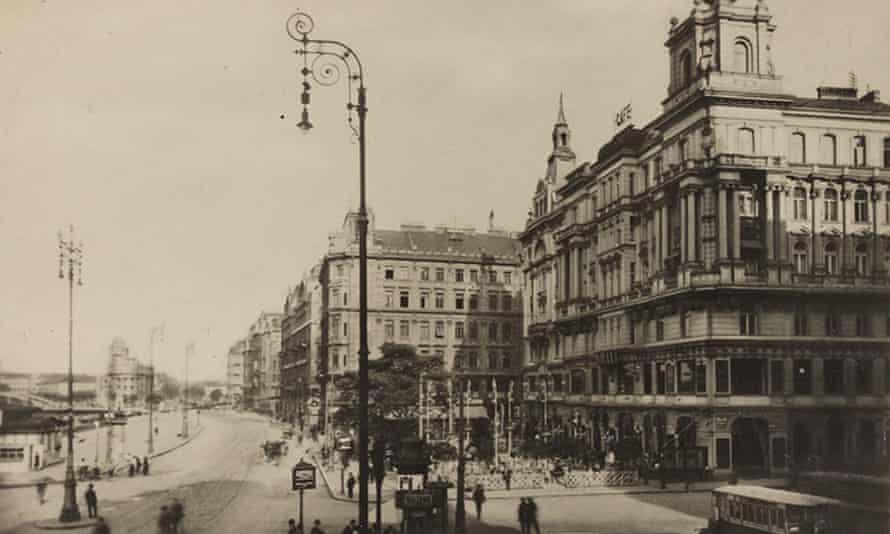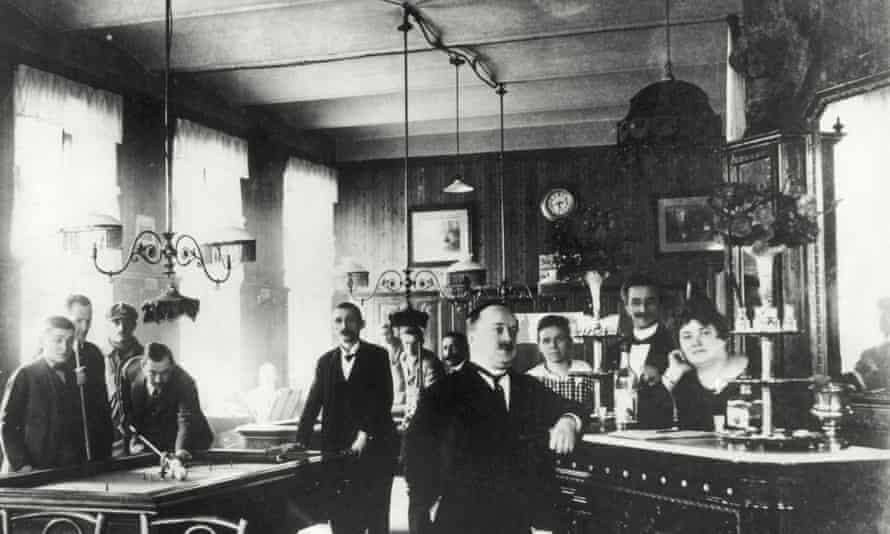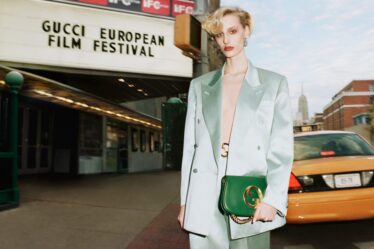
Recently Clément Vautel, on the occasion of Henry Murger’s centenary, complained in the Paris Journal of the passing of the Paris bohemians. Vienna, the city where Mozart, Beethoven, Gluck, Haydn, Strauss, and the composers of most of the best modern musical comedies lived and worked – this city, gay and beautiful, where art is a living thing, was second only to Paris in its cult of the bohemian, and as the Rodolphs and Marcels, the Chaunards and Collines, had their Café Momus, and the later generation of bohemians, headed by Verlaine, Mérimée, Manet, Degas, their Closerie de Lilas, Nouvelle Athene, and Café d’Harcourt, so also four generations of Vienna art had close connection with the cafe.
The cafe here has replaced the home. The student spent most of his leisure time – and too many of his university hours in it. Lawyers and merchants met in the cafe to discuss their cases or do their business. The scientist went to a cafe where he could read the chief scientific papers of the world for the price of a cup of coffee. The man in the street went there to read the Vienna dailies and perhaps the German, English, and French journals. The hausfrau was served with the latest “Mode Blatter” and selected from it her season’s frocks. All the news of the world was available for 40 heller, or a “Mocha Kaffee,” and while the cafe patron read or chatted he could listen to a first-class orchestra play Italian or German operas and sweet Viennese songs.
The old Vienna cafe was a bourgeoise institution. The middle classes and the intelligentsia were constant patrons. But this middle class has become so poor and desperate that it can no longer pay even the small price of a cup of coffee. The old bohemian is slowly vanishing. The younger generation rather frequents the club. And so, one after another, the famous old cafes are slowly closing down. The famous Café l’Europe was one of the first to close – almost a year ago. It was familiar to tourists. It was just opposite the St Stephen’s Church, the Vienna Cathedral, and many Englishmen will remember the lovely view of the cathedral spire which one could enjoy from the cafe terrace. Financiers, famous merchants, and actors used to visit the “Europe.” The disappearance of the Café Fenstergucker, formerly on the Karntner Strasse, near the Opera, is a natural consequence of the passing of the old military class. Here, for at least two generations, the members of the Austrian General Staff were accustomed to meet. Although Konrad von Hotzendörf visited the cafe only rarely, his predecessor, General Schemus, was a daily guest, and practically all other members of the general staff were constant visitors. With the collapse of the empire the general staff passed away, and with the general staff went the Café Fenstergucker. It is symbolic of the change that has come over Vienna that the old cafe has been converted into a bank, as has the other famous cafe in the Wipplingerstrasse, where Austria’s home secretaries for three generations, the Bachs and Schmerlings, used to take their second breakfast. Other cafes have been turned into fur shops, automobile showrooms, and the like.
More than in any other sphere, the Vienna cafe played a role in the art life of the city, and especially in music. Gluck and Haydn belonged to the pre-cafe time; but Beethoven was fond of the cafe. He was a restless soul; he changed his residences in and around Vienna constantly, and as often as he changed his residence changed his cafe. The little cafes around the Schwarzspanierhaus have the richest memories of him. Many concords of sweet sound were conceived in these dingy little places, where Beethoven came often to sip his Mocha Schwartz. Mozart, too, was restless. Yet we know that the little cafe in one of the courtyards of the old maze of houses called ‘‘Freshaus,” in the heart of Vienna, witnessed the birth of many of the loveliest passages in The Magic Flute. Near the Neue Market, in Plankengasse, stood up till a few years ago a dirty little place called Silberne cafe. Here Schubert composed many of his sweetest songs, and here he came to meet his friends – Beethoven and the famous Austrian playwright Griliparzer. Brahms, the other of the great Vienna musicians, often visited the Café Apfel, behind the Technical High School. It was a cafe mostly frequented by students, but here stood also the accustomed table of Brahms, where every afternoon he enjoyed his cup of coffee and met his friends The cafe was close to his rooms in the Karlsgasse, and he and his friends played there, day after day, billiards and skittles.
Another man fond of cafes and billiards was Johann Strauss, the “Waltz King,” composer of the Blue Danube. He was accustomed to meet his friends In the Café Dobner, on the Linke Wienzeile, and every afternoon he watched a game of billiards between his friends. The Café Dobner was, and is, a typical theatrical cafe, where actors and actresses meet. At Easter the “Actor Exchange” is staged here. All provincial actors seek, find, and renew engagements around the little marble-top tables of this cafe. Artists and music-hall people have their “bourse,” or fair, in the Artisten Café, near the Praterstern. “The Gay Knights,” the first actors’ association treats union (existing before people knew the word trade union), had its seat in this cafe.

The cafe, therefore, has played a great part in the life of Vienna, and now it is passing away. One is tempted to ask: Is the decay of the cafe a sign of the decay of the arts in Vienna? Who knows? Mayer, the corpulent bass of the Vienna Opera, still goes almost daily to the Opera Café. But the once crowded singers’ table is almost empty. The beautiful blonde, ever-smiling Jeritza, who once sat here every day, is thrilling audiences in the New York Metropolitan Opera, and, one fears, is taking on the airs and hauteur of the American prima donna, losing her old democratic, free, Bohemian spirit.
The scientist, the student, too often cannot afford to go to the cafe in these dark days. The nouveaux riche are snobbish and consider the cafe beneath them. The only class who can afford the cafe are the workers, and the working class is also changing in its psychology. The worker is machinised, and tired and mentally deadened by eight hours work on the machine. The cafe, with its coffee and chatter and papers, offers him little amusement. He seeks instead the kinema – and drink. The decline of the cafe is marked by the rise of the public-house in Vienna, in its specific form, called “The Heuriger.” But the growth of the Heuriger is another story.
This is an edited extract. Read the article in full.



